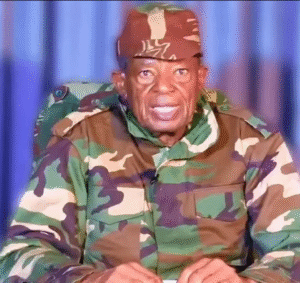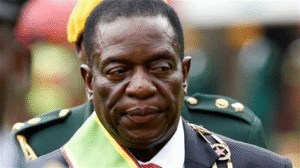PARLIAMENTARY CHAOS IN ZIMBABWE: SPEAKER DEFIES COURT ORDER IN MPS’ RECALL SAGA

In a dramatic escalation of Zimbabwe’s ongoing political turmoil, Speaker of Parliament Jacob Mudenda has blatantly defied a High Court order, sanctioning the removal of 18 main opposition Citizens Coalition for Change (CCC) MPs and senators. This bold move, occurring amidst a controversial MPs recall process allegedly coordinated by state security agents and their affiliates, has cast a spotlight on the fraught state of Zimbabwe’s democratic institutions.
The recall process, spearheaded by political activist Sengezo Tshabangu and seemingly endorsed by Mudenda, has been met with fierce opposition from the CCC. Led by Nelson Chamisa, the party has challenged Mudenda’s authority to continue with these politically charged removals. In a recent development, the High Court intervened, ordering a halt to the recalls pending a hearing set for November 20 at 2:30pm.
However, in a surprising twist, Mudenda proceeded with the removals despite being aware of the court’s decision. High Court Justice Tawanda Chitapi, at approximately 1:30pm, had explicitly instructed that the Speaker cease the recall actions. Mudenda’s legal counsel was present in court and was tasked with informing him of this order, especially given that Parliament was due to convene at 2.15pm, before the written order could be issued.
According to a lawyer who spoke to The NewsHawks, Mudenda was promptly informed about the court’s decision via a call from his lawyers. Yet, the recalls were announced after 4pm, when the written order was finally obtained, indicating that Mudenda had knowingly disregarded the judicial directive.
This incident raises significant questions about the rule of law and the separation of powers in Zimbabwe. Mudenda’s decision to forge ahead with the recalls, despite a clear judicial order, is not just a breach of legal protocol but also a stark display of partisan politics, undermining the very fabric of Zimbabwe’s democratic process.
The CCC’s legal challenge against Mudenda’s authority highlights a broader struggle for political fairness and representation in Zimbabwe. The opposition party’s efforts to contest the recalls reflect a wider concern over the politicization of state institutions and the erosion of democratic norms. Mudenda’s actions, thus, do not exist in isolation but are symptomatic of deeper issues plaguing Zimbabwean politics.
The upcoming court hearing on November 20 is not just a procedural formality. It represents a critical juncture for Zimbabwean democracy, where the judiciary’s role as a check on arbitrary political power will be put to the test. The outcome of this case could have far-reaching implications for the balance of power within the Zimbabwean government and the integrity of its parliamentary processes.
As Zimbabwe grapples with this unfolding crisis, the international community and domestic stakeholders will be watching closely. The respect for judicial authority and adherence to democratic principles stand as the bedrock of any functioning democracy. The defiance of these principles by a high-ranking official like Mudenda not only challenges the rule of law but also sets a precarious precedent for the future of governance in Zimbabwe.




